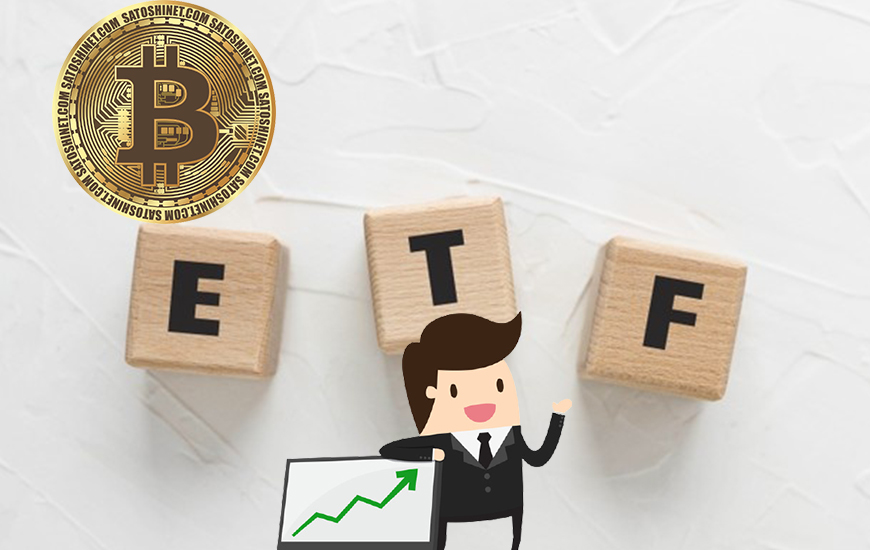- Bitcoin ETF to aid portfolio diversification objectives and not retail investors
- Institutions to benefit from ETFs and their scale of operations
- Contango to play a massive role in determining yield in near-future investments
The Securities and Exchange Commission (SEC) greenlighting a prospects-based trade exchanged asset for bitcoin has been a help to holders of the cryptographic money this week, with bitcoin hitting unequaled highs barely short of $67,000 on information on the ETF’s freedom.
The misfortune is so enormous it makes any worries the SEC had about unstable, conflicting reference costs for spot-market bitcoin ETFs appear to be minor. In picking the prospects street to an ETF as opposed to endorsing a spot market-upheld reserve, the SEC appears to have picked the most effortless course from a controller’s stance, considering that the basic agreements – the CME Group’s bitcoin futures – are themselves managed by the Commodity Futures Trading Commission (CFTC).
Because of a typical marvel in prospects markets known as contango, the chief of the recently recorded ProShares Bitcoin Strategy ETF looks liable to bring about such huge costs that financial backers will acquire a significantly lower return than if they’d put straightforwardly in bitcoin.
Shield from vulnerability
On the off chance that it had rather honored one of the many spot market-upheld ETF propositions submitted in the course of recent years, it would have expected to endorse the costs cited by trades whose bitcoin postings aren’t directed by either the SEC or the CFTC. Forget about it, there are currently modern, dependable records that would serve that job completely well.
It appears to be the SEC just couldn’t get past the worldwide, unregulated universe of bitcoin trades and the costs they produce. So it drop-kicked to a prospects arrangement. However, in picking that way over the spot market and basically supporting contango-based misfortunes, the SEC might be doing more mischief to the little financial backers it should shield than they would cause from whatever vulnerability the spot market brings.
As per Gunzberg, the normal “negative yield” per month-to-month roll on bitcoin futures for the beyond a couple of long stretches of its reality has been 2.29%. On an annualized premise, if financial backers held offers in a bitcoin futures store that had turned over consistently for as long as a year, they’d have wound up with an aggregate expense of 28% comparative with the spot market.
Less expensive than gold
The month-to-month normal negative yield for bitcoin futures is over the normal contango cost brought about by unrefined petroleum futures, at 1.69% each month, and just marginally beneath that of unleaded gas, at 2.85%. It’s fundamentally higher than the month-to-month contango costs caused by gold prospects, which are normal at 0.23%.
For wares, a lot of the contango impact is clarified by capacity costs, which mount up over the long haul and in this manner make longer-dated futures contracts more costly. Those expenses change from one product to another. Gas and oil are exorbitant to store; gold isn’t. Thus, the difference in the normal negative yield roll.
Also read: SECRET NETWORK PARTNERS WITH OPENSEA TO INTRODUCE NFTS
However, Bitcoin, which as indicated by Gunzberg’s examination is in a condition of contango 58% of the time, is much less expensive than gold to store. Capacity isn’t a factor at all in its inclination toward contango, which is clarified simply by hyper-bullish future value assumptions. Indeed, the shortfall of any capacity issue makes overseeing bitcoin prospects a totally different – and apparently more troublesome – recommendation than for item futures.
The other contango-related issue with a futures upheld ETF is that store chief are compelled to hold a lot of money to cover the turn installments over the long run, which sets out a freedom cost because those finances aren’t presented to bitcoin’s benefits. Paradoxically, spot market-supported ETFs can contribute the greater part of their assets.

Andrew is a blockchain developer who developed his interest in cryptocurrencies while pursuing his post-graduation major in blockchain development. He is a keen observer of details and shares his passion for writing, along with coding. His backend knowledge about blockchain helps him give a unique perspective to his writing skills, and a reliable craft at explaining the concepts such as blockchain programming, languages and token minting. He also frequently shares technical details and performance indicators of ICOs and IDOs.


 Home
Home News
News










